| For over two decades, Jim Algie was one of the most prominent Canadian journalists based in Bangkok. He has since gotten married and moved back to North America. In this Q & A with Scott Murray, we look back at his life and time in Thailand. ■ Born in Ottawa but raised in Edmonton, Jim Algie cut his teeth as a musician, writer and college-radio DJ in the Canadian underground rock scene of the 1980s. He played and toured across North America and Europe with influential bands like Jerry Jerry and the Sons of Rhythm Orchestra as well as the Asexuals, while also contributing music stories to many rock and punk publications. After retiring from musical duty in 1991 to restart his writing career and put his BA in literature and creative writing to good use, he moved on to live in Casablanca, Berlin and Bangkok, where he worked as a journalist, co-founded an infamous travel magazine and published a number of acclaimed books like “Bizarre Thailand.” In early 2019, he married a Californian in Bangkok and returned to live in North America. How did you end up in Thailand? After my music career ended, I was living in Barcelona and hoping to move to Taiwan to continue teaching and writing, when I stopped in Bangkok to get a visa and they turned me down. What was supposed to be 10 days in Thailand turned into 26 years! |
Why did you decide to stay in Thailand?
I arrived in late 1992 a few months after the military coup and “Black May” killings of pro-democracy protestors on the streets around Democracy Monument (oh, the irony), during the kingdom’s “economic miracle” of double-digit growth rates. It was a hugely exciting boom era when the country was convulsed by social upheavals, cultural shifts, rabid consumerism, and wonderful economic opportunities. So I stuck around to witness and chronicle those changes, and make some glorious lucre into the bargain.
Please tell us a little bit about Farang Untamed Travel magazine.
It was the late Bobby McBlain, Cameron Cooper and myself, all refugees and friends from The Nation, who founded the magazine and became the first editors, shareholders and writers. When we started in 2001, I think there was a need for a publication that was edgier, funnier and more sensationalistic, but that also tried to reflect so many of the realities of travel – not the fantasies in the glossy magazines or that the tourism boards portray.
So we covered the dark side of Asian countries, too, the crime, scams, corruption, drug abuse, foreign inmates in Thai jails and the sad lives of child beggars at Angkor Wat, as well as sex on the road among travelers in the column “The Khaosan Stalker,” written by an expat woman. Above all, we tried to keep up a spontaneous approach. After the military coup of 2006 that deposed Thaksin, we were on deadline. Our managing editor Daniel Cooper got some photos of soldiers and tanks massing around government house at midnight and we decided to become the only travel mag ever to put a tank on the cover.
Then me, Dan and Cam wrote up a quick story about our different experiences during the coup that night, and how the CBC interviewed me on national radio about the event with their usual flurry of dramatic clichés, “As you approached the soldiers with their live weapons did you feel afraid for your life?” “Not really. The first thing I saw was an old Thai guy presenting the soldiers with a bouquet of roses, and the military announced the coup on TV by saying in Thai, ‘Sorry for the inconvenience…’”
I arrived in late 1992 a few months after the military coup and “Black May” killings of pro-democracy protestors on the streets around Democracy Monument (oh, the irony), during the kingdom’s “economic miracle” of double-digit growth rates. It was a hugely exciting boom era when the country was convulsed by social upheavals, cultural shifts, rabid consumerism, and wonderful economic opportunities. So I stuck around to witness and chronicle those changes, and make some glorious lucre into the bargain.
Please tell us a little bit about Farang Untamed Travel magazine.
It was the late Bobby McBlain, Cameron Cooper and myself, all refugees and friends from The Nation, who founded the magazine and became the first editors, shareholders and writers. When we started in 2001, I think there was a need for a publication that was edgier, funnier and more sensationalistic, but that also tried to reflect so many of the realities of travel – not the fantasies in the glossy magazines or that the tourism boards portray.
So we covered the dark side of Asian countries, too, the crime, scams, corruption, drug abuse, foreign inmates in Thai jails and the sad lives of child beggars at Angkor Wat, as well as sex on the road among travelers in the column “The Khaosan Stalker,” written by an expat woman. Above all, we tried to keep up a spontaneous approach. After the military coup of 2006 that deposed Thaksin, we were on deadline. Our managing editor Daniel Cooper got some photos of soldiers and tanks massing around government house at midnight and we decided to become the only travel mag ever to put a tank on the cover.
Then me, Dan and Cam wrote up a quick story about our different experiences during the coup that night, and how the CBC interviewed me on national radio about the event with their usual flurry of dramatic clichés, “As you approached the soldiers with their live weapons did you feel afraid for your life?” “Not really. The first thing I saw was an old Thai guy presenting the soldiers with a bouquet of roses, and the military announced the coup on TV by saying in Thai, ‘Sorry for the inconvenience…’”
Some of Jim's books, including his latest "On the Night Joey Ramone Died' featuring tales of Rock and Punk from Bangkok, New York, Cambodia and Norway.
Why did you and Cameron Cooper pull the plug on Farang?
When we euthanized it in early 2007, the magazine had run its course in that format, and we were looking for a new investor to bring it to a bigger audience. As bad luck would have it, the American publisher who wanted to buy the magazine and retain us as consultants, backed out after the economic crisis of 2008.
What did you do from the time Farang ended until you left Thailand?
That’s when I started writing and publishing a lot of different books like the nonfiction collection of stories, “Bizarre Thailand: Tales of Crime, Sex and Black Magic,” many of which came out of a column I wrote for Farang called “Room 101.”
Then I did a short-fiction collection of crime and macabre tales called The Phantom Lover and Other Thrilling Tales of Thailand, which also included a number of my journalism experiences like reporting on the 2004 tsunami and writing about the 1992 “Black May” uprising through the eyes and lenses of a photographer friend who was arrested by soldiers. But I also wrote a solo travel guide to Thailand and worked with EDM Books to help write and edit a few different tomes like Americans in Thailand and Thailand’s Sustainable Development Sourcebook.
What places do you still want to travel to and why?
Parts of the southwest states fascinate me, because of the landscapes, the music, books, Hispanic influences and Wild West history. But Mexico and other parts of Latin America intrigue me too. Those places are still affordable and still less visited than many other parts of the world. Plus I learned quite a bit of Spanish while living in Barcelona, and there are loads of colorful festivals, lively markets, great food and wild forests to marvel at and write about.
When we euthanized it in early 2007, the magazine had run its course in that format, and we were looking for a new investor to bring it to a bigger audience. As bad luck would have it, the American publisher who wanted to buy the magazine and retain us as consultants, backed out after the economic crisis of 2008.
What did you do from the time Farang ended until you left Thailand?
That’s when I started writing and publishing a lot of different books like the nonfiction collection of stories, “Bizarre Thailand: Tales of Crime, Sex and Black Magic,” many of which came out of a column I wrote for Farang called “Room 101.”
Then I did a short-fiction collection of crime and macabre tales called The Phantom Lover and Other Thrilling Tales of Thailand, which also included a number of my journalism experiences like reporting on the 2004 tsunami and writing about the 1992 “Black May” uprising through the eyes and lenses of a photographer friend who was arrested by soldiers. But I also wrote a solo travel guide to Thailand and worked with EDM Books to help write and edit a few different tomes like Americans in Thailand and Thailand’s Sustainable Development Sourcebook.
What places do you still want to travel to and why?
Parts of the southwest states fascinate me, because of the landscapes, the music, books, Hispanic influences and Wild West history. But Mexico and other parts of Latin America intrigue me too. Those places are still affordable and still less visited than many other parts of the world. Plus I learned quite a bit of Spanish while living in Barcelona, and there are loads of colorful festivals, lively markets, great food and wild forests to marvel at and write about.
| Who are some of the most interesting people you have interviewed and why? In “Bizarre Thailand” there’s a lot of quirky characters I interviewed like Thailand’s last machine-gun executioner, who became a drinking buddy of mine, Dr Pornthip, the famous forensics investigator, and Chantawipa Apisuk, the Thai lady who founded EMPOWER which fights for the rights of sex workers and opened their own bar in Chiang Mai. For the “Americans in Thailand” tome I had the privilege of meeting and interviewing the dean of all expat writers, William Warren, perhaps the last living man who was a regular at Jim Thompson’s dinner parties, and William Klausner, who arrived in the middle of Isaan as a Yale scholar in the 1950s, taught law for decades at Chula and still works there as an advisor. Who are your greatest musical influences and why? The real cornerstones are early rock ‘n’ roll like Elvis, Johnny Burnette, Chuck Berry, old blues singers like Howlin’ Wolf and Willie Mabon, soul music by Smoky and Aretha, vintage country by Hank and Patsy Cline, and a lot of newer acts like The Legendary Shack Shakers, Al Foul, and The Handsome Family who also riff on those influences. That’s the kind of musical roots I’m basing my new songs on. By next year I hope to have enough good new “murder ballads” to record a whole new album. But your latest book is more about punk rock, isn’t it? That’s true. Most of the first songs I learned how to play on bass and guitar were by the Ramones, the Clash and Buzzcocks. So the book “On the Night Joey Ramone Died: Tales of Rock and Punk from Bangkok, New York, Cambodia and Norway” pays tribute to all those bands, but it’s also a mid-life crisis story about a falling Thai rock star, who grew up on an American military base during the Vietnam War. Now he’s taking stock of his life, trying to repair his broken family, get his band back together again and start a relationship with a younger woman, which neatly reverses the usual stereotype of Bangkok tales. This time it’s a Thai man with a farang female. The latest edition of the book includes a 130-page section of my best rock journalism pieces, and personal encounters with everyone from Leonard Cohen to Ice-T to Eddie Vedder of Pearl Jam. One of the best experiences that came out of writing the book was that Timothy Hallinan, the well-known thriller writer who’s also done a great series of Bangkok books about a part-time travel writer and detective named Poke Rafferty, put up an Amazon review of the first edition. I asked him if I could excerpt a quote for the cover blurb of the new edition, which he readily agreed to. That blurb reads: “The funniest sad book and the saddest funny book I’ve read in a long time.” |
You traveled around Thailand extensively when you were here. What were some of your favourite destinations?
Working as a travel writer and possessed by wanderlust I must have visited or passed through around 50 out of the 77 provinces. For the glimpses of real local life and great hospitality I always enjoyed staying in small Isaan villages or Muslim hamlets in the south. Over the last few years my favorite little hideaway was Lampang, a small city not far from Chiang Mai, which has the greatest number of old Lanna-style buildings in the north, a serene river and the country’s first and only Elephant Hospital.
Tell us about your work with Freeland.
I met my future wife, Rhishja, at the CITES wildlife conference in Bangkok back in 2013. She had also been writing and blogging about wildlife crime and conservation issues for many years. So we developed an immediate rapport and kept in touch. In 2016, I got a job offer from Freeland, a foundation in Bangkok that combats human and wildlife trafficking, to work as a communications support officer and media liaison. Part of my job was to try and bring those stories to the press and the public to raise awareness of how corruption rots our political and legal systems just as poaching and habitat destruction are ruining our environments, food security and quality of life.
Why did you leave Thailand after 26 years?
I got married and needed a whole new change of scenery, cuisine and inspirations. For me even the bizarre in Thailand became banal.
What do you miss most about Thailand?
The affordability, the food, the lively street markets and a certain joie de vivre that Thais have.
What are you working on these days?
I’m finishing off a new crime thriller set in Thailand that I will be trying to sell to a New York publishing house as a three-book series later this year and, as I said, writing a batch of new songs while scoping out like-minded musicians at gigs for potential
band-mates.
What’s your idea of a perfect day?
Spending time with my wife and our “family” of dogs, cats and tortoises, doing some writing, reading, playing guitar and having a few nightcaps with the missus while listening to music or Netflixing.
Couldn’t leave you without one question relating to a Canadian living in Thailand for an extended period of time. Did you notice any similar character or cultural traits between Canucks and Thais? Maybe something that at first glance wasn’t similar but on closer inspection proved to be so.
Many Canadians are humble, polite and not very egotistical or confrontational. So it might be a little easier for us to live in Thailand and work with Thais, who exude those qualities in spades, hearts and diamonds.
Working as a travel writer and possessed by wanderlust I must have visited or passed through around 50 out of the 77 provinces. For the glimpses of real local life and great hospitality I always enjoyed staying in small Isaan villages or Muslim hamlets in the south. Over the last few years my favorite little hideaway was Lampang, a small city not far from Chiang Mai, which has the greatest number of old Lanna-style buildings in the north, a serene river and the country’s first and only Elephant Hospital.
Tell us about your work with Freeland.
I met my future wife, Rhishja, at the CITES wildlife conference in Bangkok back in 2013. She had also been writing and blogging about wildlife crime and conservation issues for many years. So we developed an immediate rapport and kept in touch. In 2016, I got a job offer from Freeland, a foundation in Bangkok that combats human and wildlife trafficking, to work as a communications support officer and media liaison. Part of my job was to try and bring those stories to the press and the public to raise awareness of how corruption rots our political and legal systems just as poaching and habitat destruction are ruining our environments, food security and quality of life.
Why did you leave Thailand after 26 years?
I got married and needed a whole new change of scenery, cuisine and inspirations. For me even the bizarre in Thailand became banal.
What do you miss most about Thailand?
The affordability, the food, the lively street markets and a certain joie de vivre that Thais have.
What are you working on these days?
I’m finishing off a new crime thriller set in Thailand that I will be trying to sell to a New York publishing house as a three-book series later this year and, as I said, writing a batch of new songs while scoping out like-minded musicians at gigs for potential
band-mates.
What’s your idea of a perfect day?
Spending time with my wife and our “family” of dogs, cats and tortoises, doing some writing, reading, playing guitar and having a few nightcaps with the missus while listening to music or Netflixing.
Couldn’t leave you without one question relating to a Canadian living in Thailand for an extended period of time. Did you notice any similar character or cultural traits between Canucks and Thais? Maybe something that at first glance wasn’t similar but on closer inspection proved to be so.
Many Canadians are humble, polite and not very egotistical or confrontational. So it might be a little easier for us to live in Thailand and work with Thais, who exude those qualities in spades, hearts and diamonds.

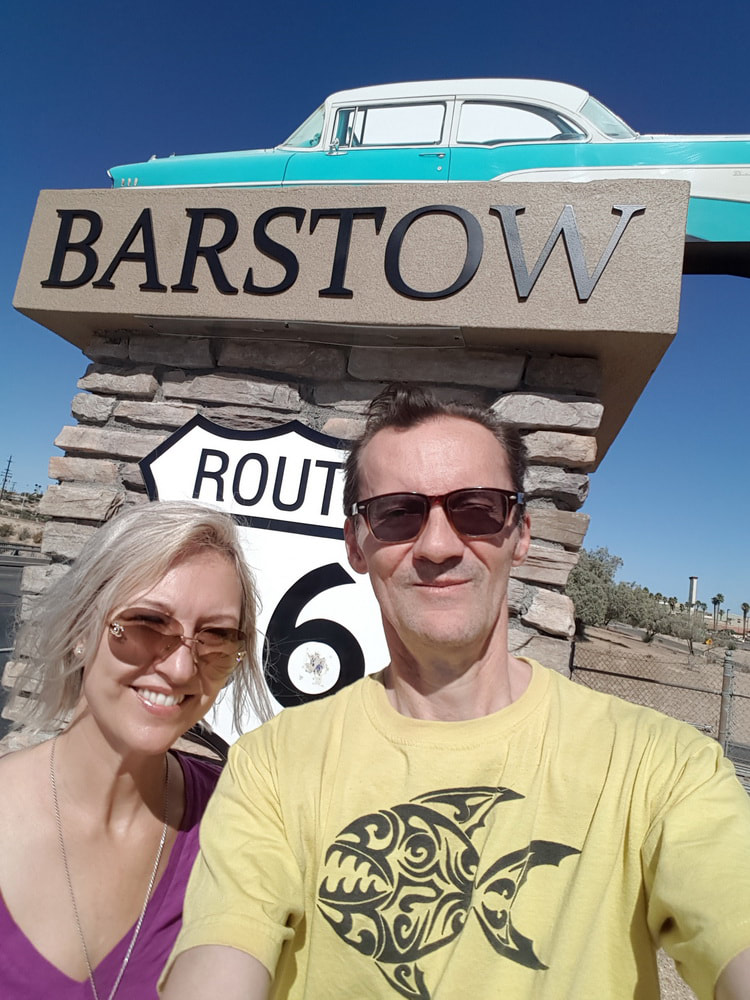
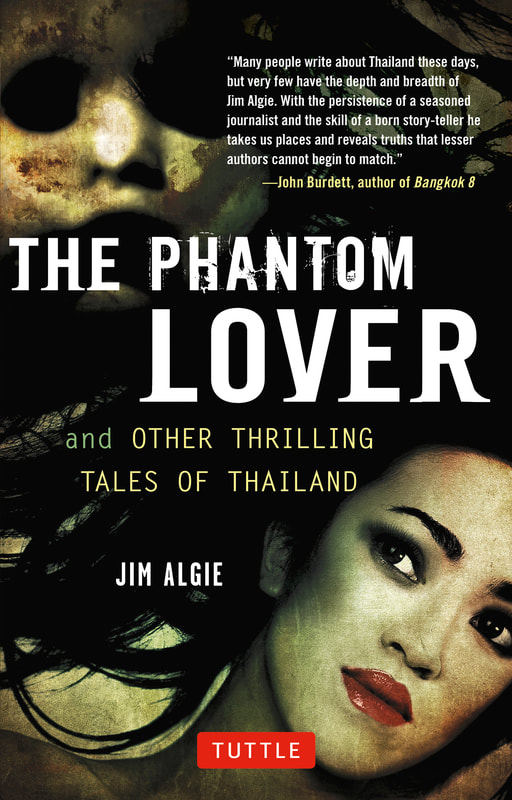
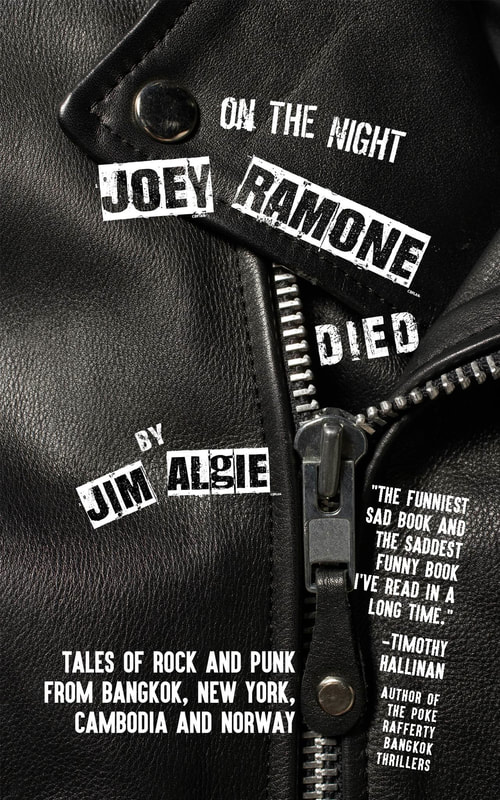
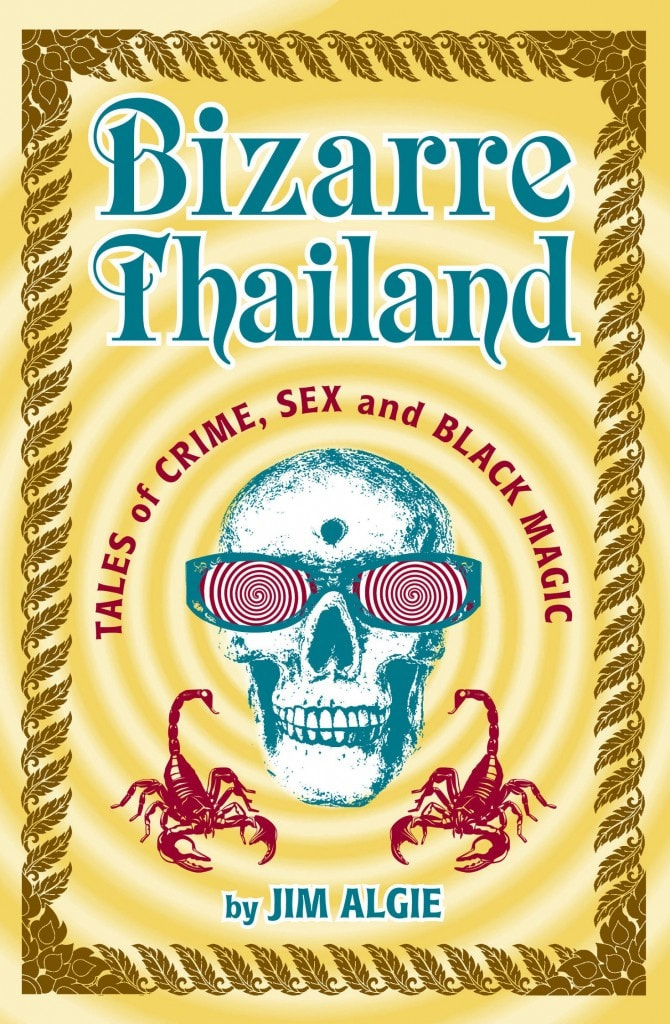
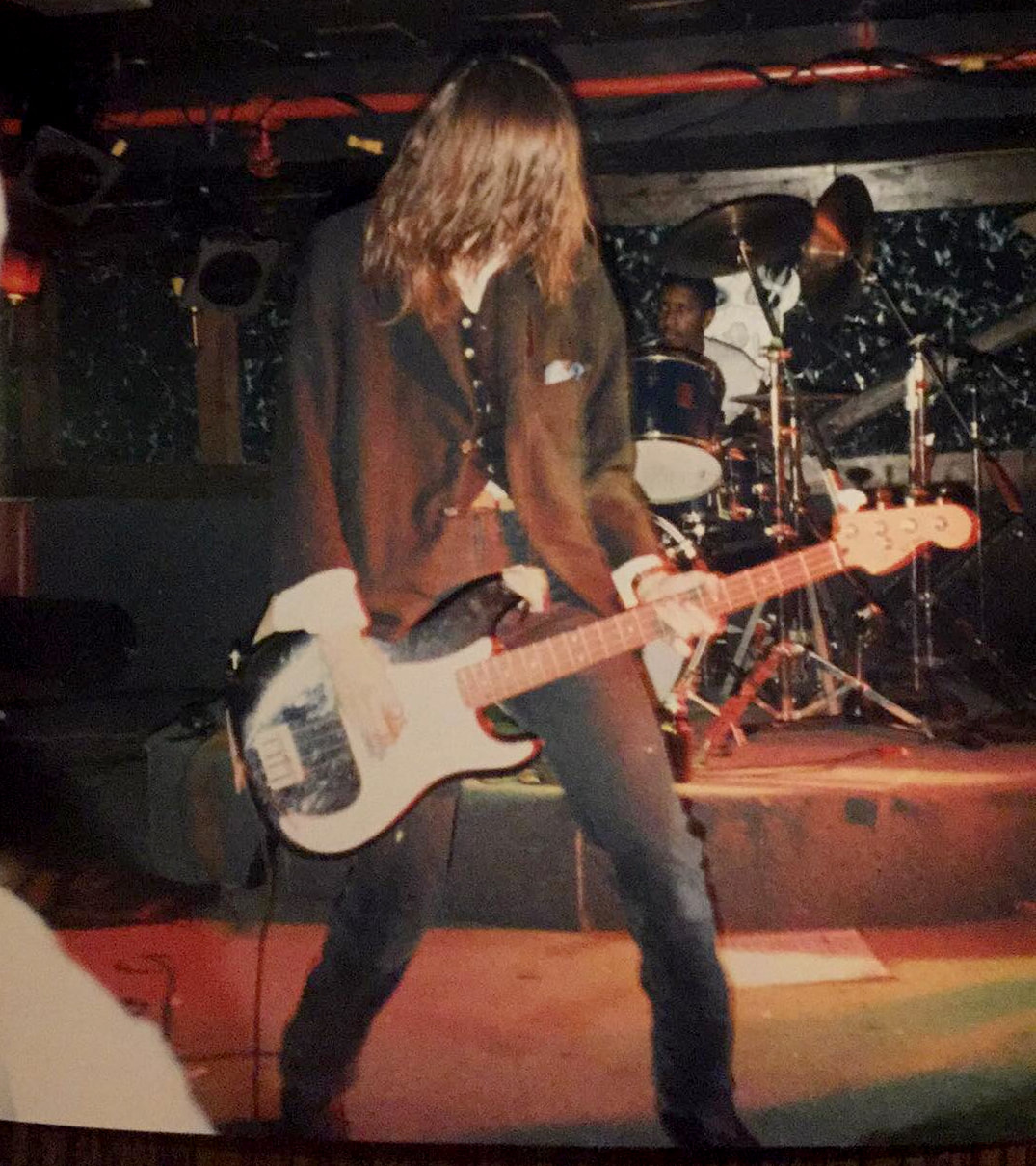
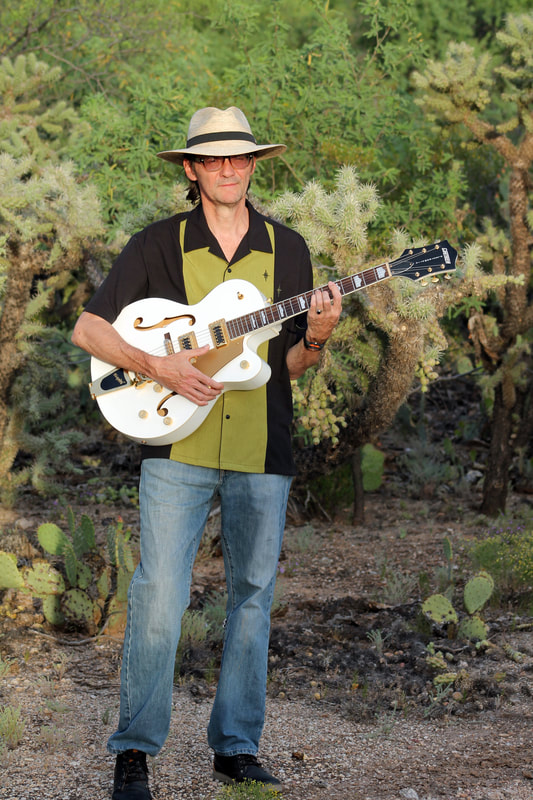
 RSS Feed
RSS Feed



